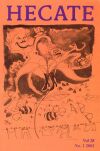Migrant Literature Articles

Author
Hasti Abbasi
Publication date
2018
Journal
Antipodes
Publisher
Wayne State University Press
Description
Exiles are cut off from their roots, their land, and their past. They generally do not have armies or states, although they are often in search of them. Edward Said claims that exiles feel “an urgent need to reconstitute their broken lives”(177) and that “much of the exile’s life is taken up with compensating for disorienting loss by creating a new world to rule”(181). According to Said, exile is a condition of terminal loss,“an unhealable rift forced between a human being and a native place, between the self and its true home,” which involves “the crippling sorrow of estrangement”(173). He declares that exiles choose “to see themselves as part of a triumphant ideology or a restored people”(177). By “triumphant ideology,” he means nationalism in the sense that the exiled persons relegate complete truth and superiority to themselves and deceit and inferiority to outsiders. The only way out of exile is a retreat into the nostalgic …

Author
Hasti Abbasi, Stephanie Green
Publication date
2017
Journal
Romanticism and Contemporary Writing: Legacies and Resistances, TEXT
Description
This paper will investigate creative dislocation and the idea of the writer as exiled self through reflections on the traction and slippages between ideas of place, dislocation and writing. For a writer, producing creative work through the experience of dislocation, whether voluntary or enforced, can be isolating and difficult, but it can also bring new perspectives and opportunities for creative capacity and expression. The creative resonances of writing in exile will be explored here with reference to David Malouf’s celebrated novella An Imaginary Life (1978) in which he depicts exile as a necessary journey of becoming, a ‘dynamic marginality’ as Braidotti observes (2002: 129), which offers creative possibility rather than closure and loss. For the writer Ovid, dislocation is phenomenological prerequisite for selftransformation. His discovery is that the writer must always be at the edge of things, noticing differently, available to possibility, able to embody and to channel being as metamorphoses through creative expression.

Author
Hasti Abbasi
Publication date
2016
Journal
AAWP
Description
Sense of place functions as a touchstone for individual and national identity reflected in cultural identity through the interrelationship between landscape, individual and society. This study aims at exploring how the idea of happiness is connected with sense of place in fiction. Happiness is understood here, as a path that leads to various emotional journeys and discoveries for the characters.

4. Dislocation, feminine writing, and nomadic experience in Shahrnush Parsipur’s ‘women without men’
Author
Hasti Abbasi
Publication date
2017
Journal
Hecate
Description
The condition of exile may relate to experiences that are not explicitly defined as imposed exclusion from one’s home. Instead, exile may refer to intellectual and internal displacement within the borders of one’s country. Shahrnush Parsipur’s ‘Women without Men’ (1989/Eng. 1998) offers a significant way to understand the sense of exile in those individuals who are intellectually dislocated within their own country. The intellectual exile’s self is constantly forming as it is challenged – along with social and conventional identities being challenged. For Edward Sa d, exile involves deviations from a prescribed path and

5. Akbar Radi’s Khanomche and Mahtabi
Author
Hasti Abbasi
Publication date
2012
Book
Radishenasi 2
Publisher
Tehran: Ghatreh Press
